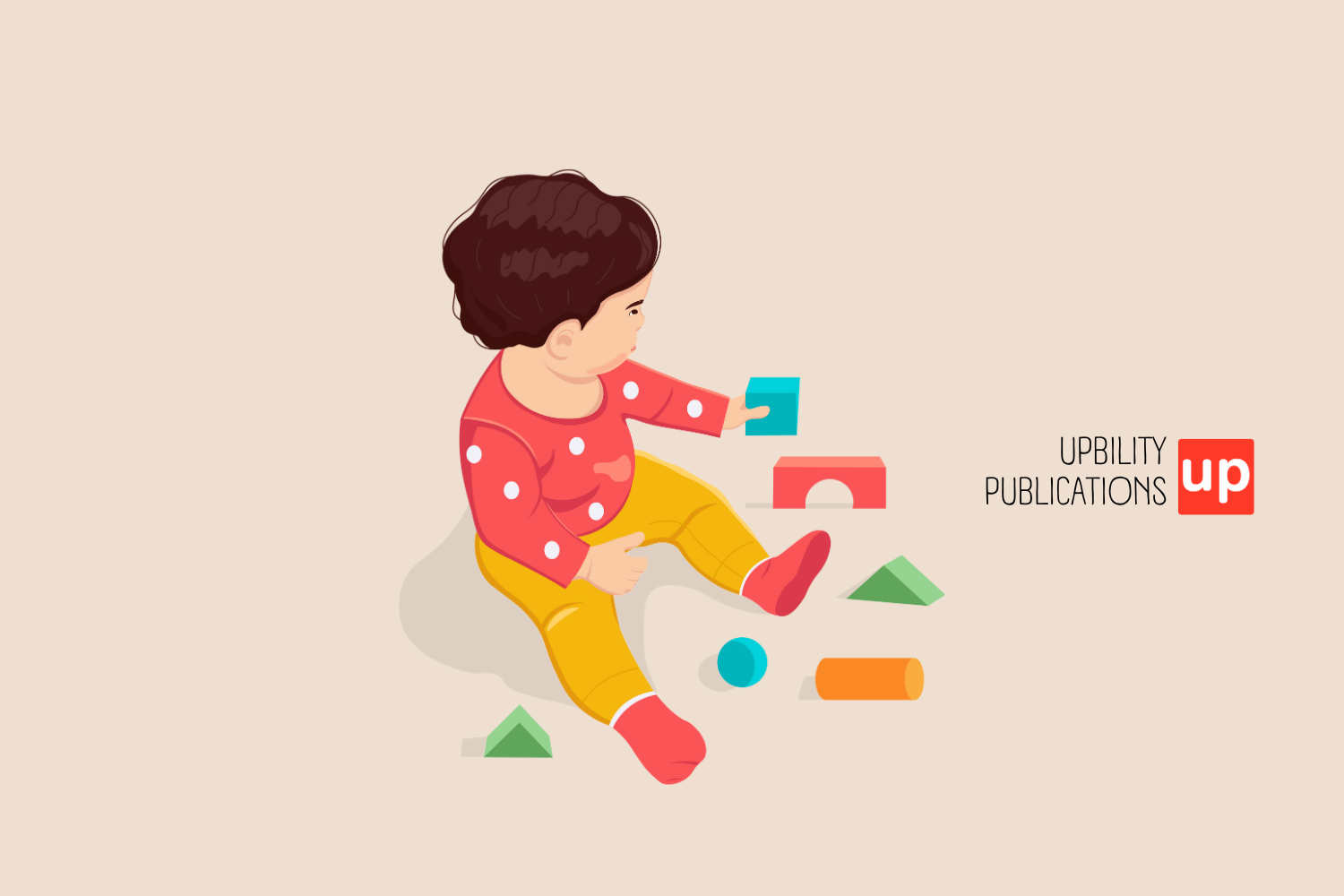Gross motor skills refer to the ability to use the large muscles of the body to perform physical activities.
These skills are important for a child's development and are essential for everyday activities such as walking, running, jumping and climbing. They also play a vital role in a child's cognitive, social and emotional development. Therefore, it is important for parents and teachers to understand the importance of developing gross motor skills and how to promote them effectively.
 Types of motor skills
Types of motor skills
There are two main types of motor skills: gross motor skills and fine motor skills:
Gross motor skills: Gross motor skills involve using the large muscles of the body to perform physical activities. These skills are necessary for activities such as walking, running, jumping and climbing. Examples of gross motor skills include:
- Walking
- Running
- Jumping
- Climbing
- Kicking a ball
- Riding a bike
- Throwing and catching a ball
- Skipping
- Dancing
- Swimming
Fine mobility: Fine motor skills involve using the small muscles of the body to perform precise movements. These skills are essential for activities that require hand-eye coordination, such as writing, drawing, and using tools. Fine motor skills emerge in infancy and should be mastered by school age. Examples of fine motor skills include:
- Grasping and holding objects
- Cutting with scissors
- Writing and drawing
- Using utensils for eating
- Buttoning and zipping clothes
- Playing musical instruments
- Using a computer mouse or keyboard
- Tying shoelaces
On our website you will find a wide range of materials that you can use.
Both gross and fine motor skills are important for a child's development and daily activities. Gross motor skills are necessary for physical activities and play, while fine motor skills are necessary for activities such as writing, drawing and self-care. Children develop these skills gradually over time, with gross motor skills usually developing earlier in life than fine motor skills.
II. Milestones of gross motor skills by age
 A. Infants (0-12 months)
A. Infants (0-12 months)
During the first year of life, infants rapidly develop their gross motor skills. Skills related to gross motor skills develop gradually from 2 months of age. They begin with the development of head control, followed by rolling, crawling and eventually walking. By 6 months, most infants can sit upright with support and by 9-10 months, they can usually crawl or crawl. By 12 months, most infants can stand upright and take a few steps independently.
B. Young children (1-3 years of age)
Toddlers are becoming increasingly mobile and gaining confidence in their gross motor skills. They learn to walk, run, climb and jump. They can also throw and catch a ball and use utensils to feed themselves. By 2 years, most toddlers can climb up and down stairs with help and by 3 years, they can usually do it independently.
C. Preschoolers (3-5 years)
Preschoolers are refining their gross motor skills and becoming more coordinated. They can ride tricycles, hop, skip and jump with both feet. They can also throw and catch a ball more accurately and use scissors to cut paper. By age 4, most preschoolers can walk up and down stairs with their legs alternately and by age 5, they can jump and hop with one foot.
D. School-age children (5-12 years)
School-age children continue to improve their gross motor skills and develop new ones. They can ride a bicycle, play team sports and perform more complex movements such as cartwheels and somersaults. They can also tie their shoes and use tools such as hammers and screwdrivers.
E. Teenagers (12-18 years old)
During adolescence, gross motor skills continue to develop and become more specialised. Adolescents can perform complex movements such as dance routines and gymnastics. They can also participate in team sports at a higher level and may begin to specialise in a particular sport.
III. Factors affecting the development of gross motor skills
 A. Genetics
A. Genetics
Genetics plays a role in the development of a child's gross motor skills. Some children may be born with a genetic predisposition to excel at certain physical activities. However, genetics is not the only determining factor in the development of gross motor skills.
B. Environment
The environment in which a child grows up can also influence the development of gross motor skills. Children who grow up in environments that provide opportunities for physical activity and play are more likely to develop strong gross motor skills. In contrast, children who grow up in sedentary environments may be at a disadvantage.
C. Health and nutrition
Good health and nutrition are essential for the development of gross motor skills. Children who are healthy and well-nourished have more energy and are more able to participate in physical activities. In addition, certain medical conditions, such as cerebral palsy, can affect the development of gross motor skills.
D. Opportunities for practice and play
Opportunities for practice and play are essential for the development of gross motor skills. Children who have access to playgrounds, sports teams and other physical activities are more likely to develop strong gross motor skills. In addition, parents and teachers can provide opportunities for practice and play at home and in the classroom.
IV. Strategies to promote the development of gross motor skills

A. Creating a safe environment
It is important to create a safe environment for children to exercise and play. This includes ensuring that playgrounds and other play areas are free of hazards and that children wear appropriate safety equipment, such as helmets when riding a bicycle.
B. Providing opportunities for play and exercise
Parents and teachers can provide children with opportunities for practice and play in a variety of ways. This may include playing games, participating in sports teams and participating in outdoor activities such as hiking and camping.
C. Encourage physical activity
Encouraging physical activity is essential for developing gross motor skills. Parents and teachers can encourage physical activity by limiting screen time and encouraging outdoor play and physical activity.
D. Use of developmentally appropriate toys and equipment
The use of developmentally appropriate toys and equipment is important for the development of gross motor skills. Toys and equipment should be safe and appropriate for the child's age and skill level.
E. Incorporate gross motor skills into daily routines
Parents and teachers can incorporate gross motor skills into daily routines by encouraging children to walk or bike to school, play outdoors during recess, and participate in physical activity during after-school programs.
V. Common challenges and interventions in gross motor skills
 A. Developmental coordination disorder
A. Developmental coordination disorder
Developmental coordination disorder (DCD) is a condition that affects the development of gross motor skills. Children with DCD may have difficulty coordinating and performing physical activities. Interventions for DCD may include physical therapy, occupational therapy, and specialized instruction.
B. Cerebral palsy
Cerebral palsy is a neurological condition that affects the development of gross motor skills. Children with cerebral palsy may have difficulty with muscle control and coordination. Interventions for cerebral palsy may include physical therapy, occupational therapy and assistive devices such as braces and wheelchairs.
C. Down's syndrome
Down syndrome is a genetic condition that can affect the development of gross motor skills. Children with Down syndrome may have low muscle tone and delayed development of gross motor skills. Interventions for Down syndrome may include physiotherapy, occupational therapy and specialist teaching.
D. Sensory processing disorder
Sensory processing disorder (SPD) is a condition in which the brain has difficulty processing sensory information. Children with SPD may have difficulties with balance and coordination. Interventions for SPD may include sensory integration therapy and occupational therapy.
Fine motor skills and children with disabilities
Gross motor skills are essential for a child's development, and this is also true for children with disabilities. Children with disabilities may have difficulty developing gross motor skills due to physical limitations, sensory problems or other factors. However, with appropriate interventions and support, these children can make progress in developing their gross motor skills.
Physical disabilities such as cerebral palsy, spina bifida and muscular dystrophy can affect the development of a child's gross motor skills. These conditions can cause muscle weakness, spasticity and other motor disorders that can make it difficult for children to perform physical activities.
However, physical therapy can help children with physical disabilities improve their gross motor skills. A physical therapist can work with the child to develop a plan of care that includes exercises to improve strength, coordination, and balance. He or she may also provide adaptive equipment, such as braces, wheelchairs and walkers, to help the child move more easily and safely.
Sensory processing disorders can also affect the development of a child's gross motor skills. Children with sensory processing disorders may be hypersensitive or undersensitive to sensory input, which can affect their balance and coordination.
Sensory integration therapy can help children with sensory processing disorders improve their gross motor skills. This therapy involves activities that provide sensory input in a structured and controlled environment. The goal is to help the child learn to process sensory information more efficiently, which can improve balance and coordination.
Intellectual disabilities can also affect the development of a child's gross motor skills. Children with intellectual disabilities may have difficulty understanding instructions or following directions, which can make it difficult to learn new gross motor skills.
However, with appropriate teaching and support, these children can make progress in developing gross motor skills. Special education teachers, occupational therapists and physical therapists can work together to develop individualized plans that meet the child's needs and support the development of gross motor skills.
E. Strategies to support children with gross motor skills challenges
Strategies to support children with gross motor skill challenges may include providing additional opportunities for practice and play, using assistive devices, and seeking specialized instruction or therapy.
Conclusion
In conclusion, gross motor skills are essential to a child's development and play a vital role in their cognitive, social and emotional development. Body movement is closely related to gross motor skills, as gross motor skills involve the use of the large muscles of the body to perform physical activities.
Parents and teachers can promote the development of gross motor skills by creating a safe environment, providing opportunities for play and practice, encouraging physical activity, using developmentally appropriate toys and equipment, and incorporating gross motor skills into daily routines.
In addition, interventions for common gross motor skill challenges may include physical therapy, occupational therapy, and specialized instruction. By understanding the importance of gross motor skill development and how to effectively promote it, parents and teachers can help children reach their full potential.
If you have concerns about your child at any age, don't hesitate to talk to a professional.
On our website you will find a wide range of materials that you can use.
Original content from the Upbility writing team. Reproduction of this article, in whole or in part, without credit to the publisher is prohibited.












